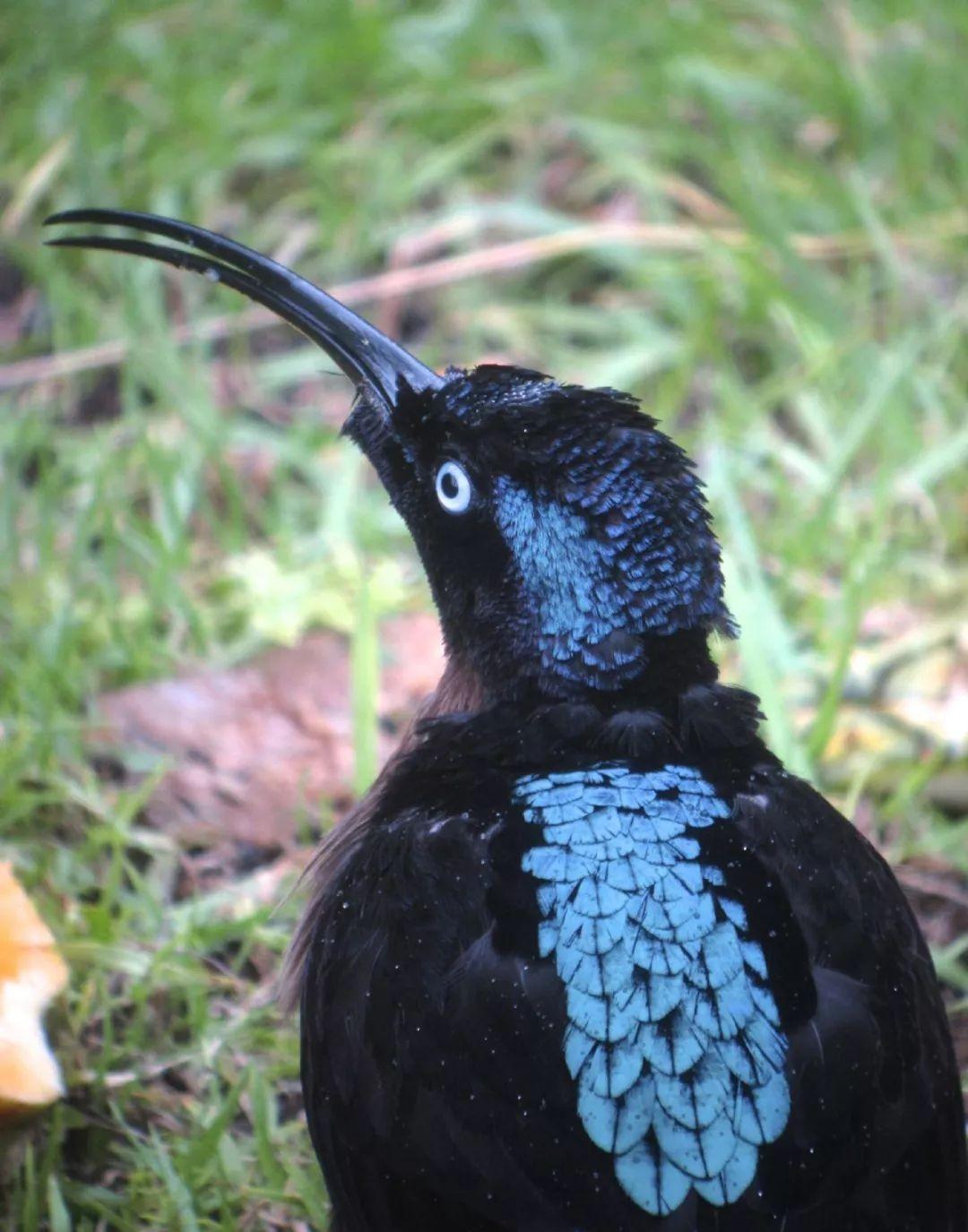Name: Black Sickle-billed Windbird
Epimachus fastosus
Phylum: Chordata phylum Chordata
Order: Ornithischia Aves
Order: Passeriformes
Family: Birds of Paradise Paradisaeidae
Genus: Epimachus

The Black Sickle-billed Windbird is a large bird of paradise in the mid-mountain forests of New Guinea.
The diet of the sickle-billed windbird consists mainly of foraging for fruits and small animals on the canopy, as well as insects and other arthropods that explore mosses and plants such as crabs, lice, shrimp, spiders, scorpions, centipedes, and millipedes.
This type of male is polygamous, and the male uses his chest feathers to raise his head to perform a recumbent courtship statement.
In the wilderness, the offspring created by the hybridization of this bird with the black-blue long-tailed windbird were once thought to be two different species, the Elliott sickle-billed windbird and the star-colored sapphire sickle-billed windbird.
Most mainstream ornithologists generally consider the two to be hybrids, but a few ornithologists believe that Elliott may be an effective species.
Due to habitat loss, small populations, and hunting in some areas for food and tail feathers, the black sickle-billed windbird is classified as vulnerable on the IUCN Red List of threatened species. It is listed in the CITES Appendix.
The male has black feathers all over its body, which are dotted with scaly green, blue, and purple feathers, a red iris, a bright yellow beak, a long, curved black beak, a huge sword-shaped tail, and scalloped feathers that can stand up on either side of its chest.
The female is smaller than the male, with reddish-brown feathers, brown iris flowers, and beige underneath. Reaching a length of up to one hundred and ten centimeters, the male black sickle-billed windbird is the longest bird of paradise, although the curly-crowned bird of paradise has a larger torso.